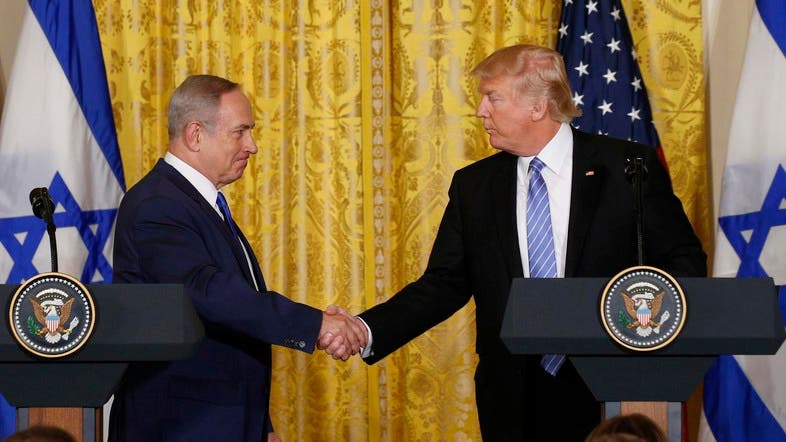Trump says Israel, Palestine must make compromises

US President Donald Trump (R) greets Israeli Prime Minister Benjamin Netanyahu after a joint news
conference at the White House in Washington, US, Feb 15, 2017 (Photo: Reuters/Kevin Lamarque)
“The United States will encourage a peace and really a great peace deal,” Trump said during a news conference with Israeli Prime Minister Benjamin Netanyahu.
“We will be working on it very, very diligently. But it is the parties themselves who must directly negotiate such an agreement,” Trump said.
Speaking on two-state or other solution for Mideast peace Trump added: “I’m happy with the one they like the best.” But he said Palestinians must ‘get rid of hate’.
Trump said ultimately both sides would have to make compromises. And he called on Israel to hold back on building further settlements for a ‘little bit’.
But Prime Minister Benjamin Netanyahu said he wanted to focus on “substance” and not “labels”, when asked about support for a two-state solution for peace between Israelis and Palestinians.
“Rather than deal with labels, I want to deal with substance,” Netanyahu said.
“There are two prerequisites for peace. First the Palestinians must recognize the Jewish state… Second, in any peace agreement, Israel must retain the overriding security control over the entire area west of the Jordan River,” he said.
Meanwhile Trump hailed the United States “unbreakable” bond with Israel and promised Netanyahu that Iran would never be permitted to build a nuclear weapon.
Trump’s vow was designed to address Israeli concerns over the nuclear deal between Iran and six world powers, which Netanyahu has warned expires too soon to permanently remove the threat.
“With this visit the United States, again, reaffirms our unbreakable bond with our cherished ally, Israel,” Trump said.
“The security challenges faced by Israel are enormous, including the threat of Iran’s nuclear ambitions, which I’ve talked a lot about,” he said.
“One of the worst deals I’ve ever seen is the Iran deal. My administration has already imposed new sanctions on Iran, and I will do more to prevent Iran from ever developing – I mean ever – a nuclear weapon.”